Jimster and I started talking about wild vs. farmed salmon on Terri's thread about Copper salmon. He has some points I had not seen before. I think this is an important topic for our health and environment so I'm starting a thread for cat fights discussion.
Here is the text, for those who are too lazy to click and scroll.
Also, I'll post more info from the Monterey Bay Aquarium's Seafood watch program about Chinese farmed Tilapia (you can guess...).
RE: Copper River Salmon..jumped into my cart today.. clip this post email this post what is this?
see most clipped and recent clippings
Posted by jessyf (My Page) on Mon, Apr 21, 08 at 19:34
I LOVE salmon chowder! And I don't buy farmed salmon anymore (which means I pretty much don't eat salmon :-(
I'm jealous
--------------------------------------------------------------------------------
RE: Copper River Salmon..jumped into my cart today.. clip this post email this post what is this?
see most clipped and recent clippings
Posted by terri_pacnw (My Page) on Tue, Apr 22, 08 at 1:11
Jessy, you can't get wild caught? They don't ship Copper River to CA? I figured they would. I only buy wild caught seafood..in fact our local fish monger just put up a sign saying local shrimp are in!!! I've got to stop and get some for hubby.
--------------------------------------------------------------------------------
RE: Copper River Salmon..jumped into my cart today.. clip this post email this post what is this?
see most clipped and recent clippings
Posted by jimster (My Page) on Tue, Apr 22, 08 at 1:38
I prefer fish I catch myself and eat the same day. BUT, there is a big misunderstanding about "farm" raised salmon. Salmon which is raised in large pens in the North Atlantic is of excellent quality. It is fed high quality food and is processed quickly after harvesting. Its freshness is far superior to fish caught by boats which are at sea for days at a time. Farm raised salmon is suitable for sushi, whereas wild salmon is not, unless frozen at a very low temperature to destroy parasites that wild salmon ingest by feeding on natural food sources. Farm raised Atlantic salmon is a great value IMO.
I don't think the same principles apply to seafood raised in warm water ponds such as shrimp, catfish and tilapia. I could be wrong.
Jim
--------------------------------------------------------------------------------
RE: Copper River Salmon..jumped into my cart today.. clip this post email this post what is this?
see most clipped and recent clippings
Posted by jessyf (My Page) on Tue, Apr 22, 08 at 7:17
Terri: Wild isn't as available down here. It comes and goes in spurts. I prefer fresh - I use frozen only when I'm hiding it in something like puff pastry or phyllo with lots of sauce. I'll keep my eyes out!
Jim - I use Monterey Bay Aquarium's Seafood watch program as my guide. Sounds like there are some, but not all, farmed sources to consider but one can't know where they sell so for now they recommend to avoid all farmed stuff. I'd like to be convinced otherwise! My BIL's sister is in the industry, he says that she won't touch farmed salmon. Got any questions I can run by her?
Tilapia: I don't eat Chinese tilapia (irks me to pick up a bag of 'American Seafood' frozen tilapia, small print on the back 'Made in China') - report also on the linked site. I once made a half hearted attempt to find USA tilapia, I think its time I tried again. Chinese tilapia: now I know why DH and others complain that its 'muddy'! Ack!
Here is a link that might be useful: Seafood Watch - salmon
--------------------------------------------------------------------------------
RE: Copper River Salmon..jumped into my cart today.. clip this post email this post what is this?
see most clipped and recent clippings
Posted by chase (My Page) on Tue, Apr 22, 08 at 7:31
Great site Jessy! I've bookmarked it.
--------------------------------------------------------------------------------
RE: Copper River Salmon..jumped into my cart today.. clip this post email this post what is this?
see most clipped and recent clippings
Posted by jimster (My Page) on Tue, Apr 22, 08 at 18:23
Most of the wild vs. farmed salmon controversy is political. The Monterey Bay Aquarium, for example, is in the business of advocating for sustainable fish populations. So their information is slanted in the direction of persuading us to do what is best (in their opinion) for the fish populations, not so much what is best on our dinner plate. They are pretty picky in their speculation of things which may possibly contaminate farmed salmon, but not concerned about contaminants in pond raised catfish or tilapia.
As a conservationist and recreational fisherman, I am sympathetic to preservation of fish stocks. I have seen the striped bass virtually disappear from Cape Cod waters and then, fortunately, make an astounding comeback. I could relate many stories like that one, some with less fortunate outcomes. But that is a different issue from food safety.
One of the few scientific studies I could find comparing wild to farmed salmon found parasites in every one of the sampled wild fish and none in the farmed fish. Other studies, looking for toxins such as PCBs, found insignificant differences at the parts per billion level between wild and farmed.
Atlantic salmon is raised in large pens which are constantly flushed with tons of cold sea water. The ocean is large. Waste products are quickly diluted, unlike ponds where the same water is recirculated again and again. The salmon are fed a carefully formulated diet, just as farm animals are. Farmed salmon are not exposed to parasites as wild fish are in foraging for food. BTW, wild fish do not become infected with parasites from penned fish as is suggested by the Monterey Bay site. The penned fish have no parasites.
An issue has been made about substances used color the flesh of the fish. The substances used are carotinoids, the same as used in chicken feed to give the chicken a nice color and the same as occur in fruits and vegetables. This issue makes me recall the days when dairy farmers in some states were able to have yellow color prohibited from use in margarine, making the pale stuff less appealing. Ironically, commercial butter often gets an assist from carotene too.
I frequently make gravlox, using farmed Atlantic salmon. That way I can chow down inexpensively on a very tasty treat. I would not use wild salmon for this. Nor would I use wild salmon for sushi. Wild salmon is not suitable for raw eating unless is is first frozen to subzero temperatures to kill parasites.
This long post barely scratches the surface or the wild vs. farmed salmon controversy. There are many issues. For example, I suspect that the availability of farmed salmon takes fishing pressure off the wild stocks. Doesn't that make sense?
Unless I hear something convincing, I'll continue to enjoy lots of farmed salmon.
Jim
--------------------------------------------------------------------------------
RE: Copper River Salmon..jumped into my cart today.. clip this post email this post what is this?
see most clipped and recent clippings
Posted by chase (My Page) on Tue, Apr 22, 08 at 18:38
Jim, I find your posts to be very interesting and informative. You started out a bit shy but I am so glad the you have come "in to your own" on the forum. You are a valuable, knowledgeable contributor and I mean that sincerely. Hopefully you will stick around.
PS: But I'm still avoiding farm raised salmon, off shore shrimp, Atlantic sole (flounder) and the dreaded tilapia! But give me fresh lake perch, pike, pickerel...I think you call it Walleye...and send me to heaven.
--------------------------------------------------------------------------------
RE: Copper River Salmon..jumped into my cart today.. clip this post email this post what is this?
see most clipped and recent clippings
Posted by jimster (My Page) on Tue, Apr 22, 08 at 19:21
Chase,
I can't tell you how warm and welcoming your post is. Thank you. Here's to many more.
Jim
--------------------------------------------------------------------------------
RE: Copper River Salmon..jumped into my cart today.. clip this post email this post what is this?
see most clipped and recent clippings
Posted by jessyf (My Page) on Tue, Apr 22, 08 at 21:59
What Chase said, Jim, I enjoy a civil discussion. I've had my share of nastiness on forums. It sounds like you are closer to the industry than I am, so I'm going to start a new thread for further visibility and discussion. Truth be told I get 'lazy' about researching and 'arguing' issues after a few back and forths so I'm hoping someone else will jump in...
Meantime, my BIL wrote back to me...
'Jessica is right. Farmed salmon worldwide have significantly higher levels of PCBs, dioxins, dieldrin, and toxaphene than wild salmon. So much so that salmon from some locales triggered consumption recommendations of 1/2 to 1 meal per month. The contaminants are (largely) in the feed, not the water.
This was reported in 'Science' in 2004 and several subsequent studies have reported similar results. Generally, farmed salmon from Europe is more contaminated than farmed salmon from North and South America. The most contaminated samples coming from Scotland.
Further, Consumer Reports found that in a sample of 23 store bought 'wild' salmon packages, only 10 (or was it 13) were actually wild. The rest were mislabeled farmed salmon.
Tilapia in China is often raised in water contaminated with municipal waste water (heavy metals, pesticides, and industrial waste). I don't have the studies at hand that reported this, but they're out there. Viet Nam raised tilapia, I believe was the least contaminated.
If your interested in this, google it. The science is there.'

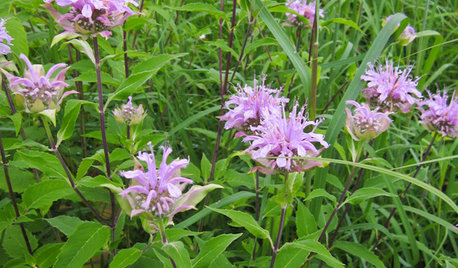
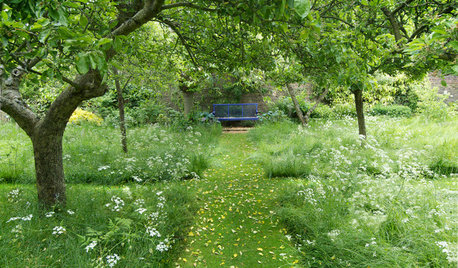
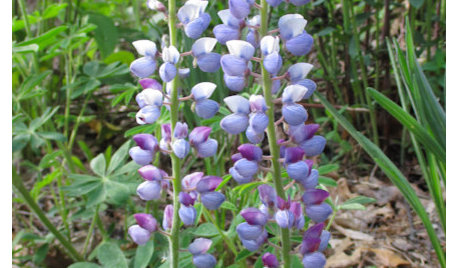
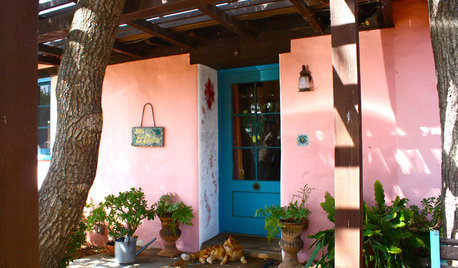

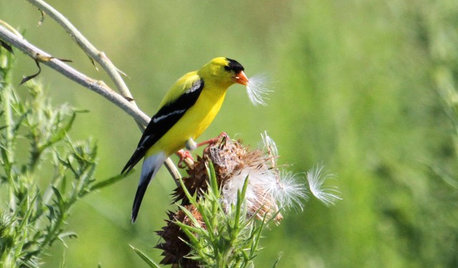
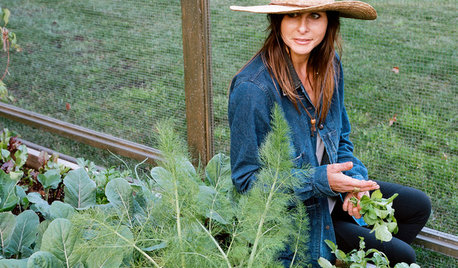
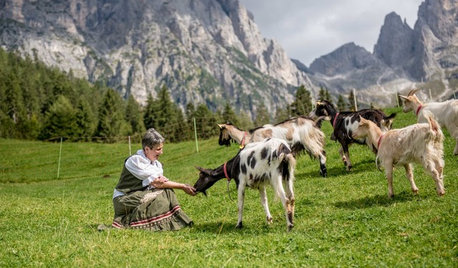






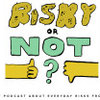
jimster
zbach
Related Discussions
RM Totes V.S. Comercial Worm Farms
Q
Can anyone find me the link about farmed vs. wild fish?
Q
Copper River Salmon..jumped into my cart today..
Q
Any Salmon Experts Out There?
Q
Gina_W
Terri_PacNW
Gina_W
annie1992
readinglady
cloudy_christine
User
jessyfOriginal Author
readinglady
shambo
cloudy_christine
annie1992
fenworth
jessyfOriginal Author
Terri_PacNW
zbach
Lars
zbach
cloudy_christine
jimster
zbach
Terri_PacNW
readinglady
spacific
denise8101214
jessyfOriginal Author
cloudy_christine
fenworth
bunnyman
annie1992
jessyfOriginal Author
lpinkmountain
jimster
jessyfOriginal Author
cooksnsews
readinglady
sally2_gw
spacific
cooksnsews
jimster
jimster